John Freedman first came to Moscow in 1988 to research his dissertation for a Ph.D in Russian Literature. He found out a lot. He also found a woman he loves and some incredible professional and personal opportunities. He is now an editor for Moscow’s largest English-language newspaper, a published author and translator, and has been oft-tapped as an authority on the Russian language and Theater by such media sources as ABC and Newsweek. He’s even worn Nikita Khrushchev’s coat.
John took some time to share with us some pointed and poignant opinions about world journalism, the status of the Theater, and life in Russia.
SRAS: What is your official job title?
John: Editor, The Moscow Times.
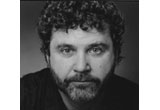
SRAS: How would you describe your job?
John: One of the best jobs in the world, perhaps, in part, because no description of it will fit into a standard format. One day a week I edit the weekly calendar of cultural events for the “Context” section of The Moscow Times. For that weekly issue, I also write a weekly review or feature on theater. Whenever there is anything unusual going on – a theater festival or tour of some major out-of-town theater – I might contribute two or, much more rarely, three pieces to a single issue. On the rare occasion that theater becomes hard news, I do pieces for the news pages or the front page. This has been the case with such stories as the long and protracted break-up of the famed Taganka Theater in the early 1990s; the first production of renowned German director Peter Stein in Moscow in 1994; the annual Golden Mask festival awards ceremonies; and the terrorist attack on the Nord Ost musical in 2002. In other words, I go to the theater a lot and write about it for The Moscow Times. This, however, is not the full extent of my work by any means. To mention just a few of my other projects: I write a monthly column for Plays International magazine in London; I have frequently contributed to the New York Times; I have written or edited nine books about Russian theater; I am a contributing editor of TheaterForum magazine; I have been the curator of the Russian Case festival three times; I have translated over a dozen plays from the Russian for production and publication; I have participated in the making of several documentary films about contemporary Russian theater and am the co-author (with playwright Viktor Korkia) of a documentary film about the Soviet playwright Nikolai Erdman. All of this, to one extent or another, has been made possible by my position at The Moscow Times.
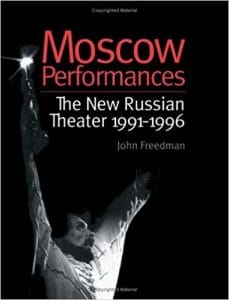
SRAS: What attracted you to working in Russia?
John: I did not come to Russia to work. I came here originally, in 1988, to work on my Ph.D dissertation (The Dramaturgy of Nikolai Erdman, Harvard University, 1990). While here I met a fabulous woman and tremendous actress, Oksana Mysina, who became my wife in 1989. There was absolutely no reason to remove this future star from her native culture, so, at a time when most cross-cultural couples were relocating to the United States, Europe, or wherever, Oksana and I settled down in Russia. I spent the first year turning my dissertation into a book (Silence’s Roar, The Life and Drama of Nikolai Erdman, 1992), occasionally doing freelance work for ABC news specials or for western companies breaking the ice by setting up businesses in Moscow. A chance acquaintance led me to a small weekly newsletter called The Moscow Guardian in 1991 for which I began writing terrible theater reviews. That newsletter became The Moscow Times in 1992 and I became its first and – so far – only theater critic.
SRAS: Are journalistic standards and styles in Russia greatly different from those in America?
John: Standards? Well, the standards for journalism in the United States have plummeted to an embarrassing degree in the last five to ten years. Frankly, I find it difficult to talk about “standards” in the profession any more. The matter of style is easier to discuss. Russian journalists – like their counterparts in Europe, where I have also lived – more openly take sides. There is less of an effort to appear “neutral.” This can strike Americans as a form of bias, although the notion of bias in world journalism today is very complex. When a reporter does not hide – in fact, openly proclaims – his or her viewpoint while delivering a story, it provides a kind of freedom for the reader or viewer. You know where you stand in relation to the source and it is easier to form your own opinion. As such, some of the Russian reporting, which on the surface can look crudely biased at times, is actually far more reliable than what you might get from an American source these days. I have always been frustrated by Russian journalism’s insistence on being a mouthpiece for the standing government – this is largely true today just as it was in Soviet times, although there are shifts in degrees, of course. And yet, when you see American journalists buying the phraseology of the American administration without question (suffice it to recall the infamous phrase of the “Shock and Awe” stage of the war in Iraq) while pretending to be independent, you realize that the bias of American reporting is more dangerous, more insidious than the admittedly flawed counterpart in Russia.
SRAS: Many Russian artists and critics believe that Russian Theater lost its soul in the crises following Glasnost. Is the Theater close to re-finding that soul?
John: I am one of those who has proclaimed all along that Russian theater never lost its soul at all. And I have little doubt that history will prove me right. Crisis, let’s not forget, is a boon for art. What art form does not love a crisis? Great art creates crises, in fact, in the sense that it bends or breaks or, at least, reinterprets set forms. So when the forms of Soviet theater began falling apart, it was a field day for creative artists. It’s another thing that some “artists and critics,” at least those with a vested interest in seeing the status quo remain intact, were threatened or confused by the rapid disintegration of what they knew and were comfortable with. Quite a few people made reputations moaning and complaining about the death of the Russian Theater. Frankly, it was a bunch of nonsense. Another thing to remember: theater, perhaps more than any other art, is a process, not a result. A show happens tonight and is gone forever. Tomorrow’s show will be different and it will come once and go forever, too. That process of becoming, the heart of theater, continued full force and unabated even as some were sounding the death knell of Russian theater and even art and culture as a whole. Russian theater throughout the 1990s was vital and strong and in a constant state of flux. The same is true today. It is one of the most resilient and resourceful theatrical communities in the world.
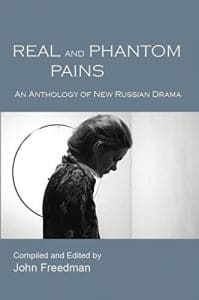
SRAS: What has been the most interesting experience you have as a reporter/writer in Russia?
John: There is no way I could possibly narrow it to one instance. Here are a few in chronological order:
- 1988 or ’89, translating for Estee Lauder as Moscow and the world press go wild at the opening of the first western cosmetics boutique in the Soviet Union. Gorky Street (now Tverskaya) was closed down for hours while a crowd of thousands crammed in to catch a glimpse of the goings-on.
- 1990, translating for ABC News as Sam Donaldson interviews Soviet Marshal Sergei Akhromeev in his Kremlin office about a year before he committed suicide after the failed coup of 1991. I was, and have always remained, deeply impressed with the sincerity, thoughtfulness and winning simplicity this man displayed that day.
- 1990, translating for ABC News as Sam Donaldson interviewed Sergei Khrushchev at his father’s dacha in the Moscow suburbs. Before we began the interview, Sergei outfitted me in a traditional cossack coat that had belonged to his father Nikita. A photographer shot me in it and promised to give me the picture. He never did. As such, I can’t prove I once wore Nikita Khrushchev’s cossack coat, but I did.
- 1990-present, having the opportunity to interview and observe at relatively close hand the great director Yury Lyubimov from time to time over a nearly 15-year period. Lyubimov is a walking piece of history, a controversial, witty, talented, wise and highly generous man. My every meeting with him has left me feeling as though I have been, for a few moments, plugged into the eternal.
- 1994-present, beginning and developing a working relationship with the great director Kama Ginkas. This extraordinary man, and extraordinary artist, has become something of a second university for me. Our collaboration on a book (Provoking Theater: Kama Ginkas Directs, 2003) and on the English subtitles for the world premiere of his production of Rothschild’s Fiddle at the Yale Repertory Theater in 2004, have been the most important and rewarding work of my life.
- May 18, 2001, the world premiere of The Polyphony of the World, a musical mystery by Alexander Bakshi directed by Kama Ginkas. Easily the most stunning piece of theater and music I have ever witnessed. Having been present at this event, I believe I know what it must have been like to be present at the first showing of Picasso’s abstractions, the premiere of Ravel’s Bolero or, perhaps, that concert at which Bob Dylan first strapped on an electric guitar. The world of the performing arts changed for me the night that The Polyphony of the World opened.
SRAS: Moscow and Petersburg both have intriguing “underground Theater” scenes: small, “artsy,” often-amateur productions, but they don’t tend to be well publicized. Can you offer advice on how to find tickets or what to see?
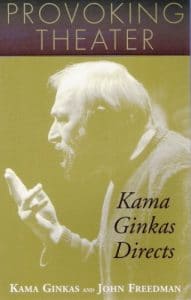
John: One of the great things about Russia is the accessibility of everything good. You can be in touch with the most famous writer or artist after a simple phone call or two. You can be sitting in the 4th row of a hot, impossible-to-attend, sold-out show after the same one or two calls. You can find yourself in the middle of an all-night conversation with painters, poets and crazies without having the vaguest notion how it came about. The point is this: Friends and acquaintances in Russia will get you into anything you want to see and will introduce you to anyone you want to meet. Ask questions. Ask for advice. Ask favors. Take chances. Be adventurous. You’ll find everything you’re looking for and more.
SRAS: Do you believe that opportunities for western journalists and writers are growing in Russia?
John: I’m not a journalist, really, have never looked at what I do as a job, let alone a career, so I frankly don’t know. I’m sure, however, that it’s harder to break into things here than it was ten or fifteen years ago. One reason is that there are enormous numbers of bright, talented, motivated Russians returning home after spending one, two, three, four years of schooling in the west. These are people with multiple languages, cosmopolitan outlooks and an innate feel for what Russia is and where it’s going. The very short time (maybe 2 to 3 years at the beginning of the 1990s) when Russians looked to foreigners for answers has long since passed. This is now a time when foreigners are coming in to learn from the Russian experience, not teach anyone anything.
SRAS: Anything you would add for students looking to Russia for opportunity?
John: The basics. Learn Russian before coming. Leave your cultural prejudices behind. Believe me, you have them whether you think you do or not. The first time you catch yourself saying, “Oh, this damn Russia…,” or “That doesn’t happen in America…,” is the first step to missing the whole point.
More From Translators from the Field
(Included current article)

Adam Fuss: Translating Russian Communications
Adam Fuss has worked as a freelance writer, editor, translator, and communications professional for over eight years. Prior to establishing ABF Communications in early 2008, he worked on a series of assignments in Moscow, Russia as a writer and translator for several high-profile global corporate communications projects. He holds a graduate degree from Georgetown University’s School of Foreign Service. […]
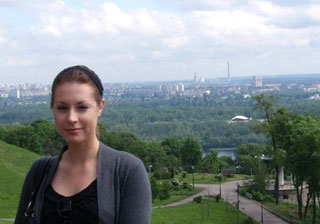
Erin Decker: Translation, Editing, and Advancement in Russia
Erin Decker holds a BA in Political Science and International Studies (Global Security) from the University of Wisconsin-Madison. After completing SRAS’s Translate Abroad program in 2009, she went on to find employment as a translator and editor in Moscow and has lived there since. SRAS: You are currently an analyst-level editor for Equity & Fixed Income Research at […]
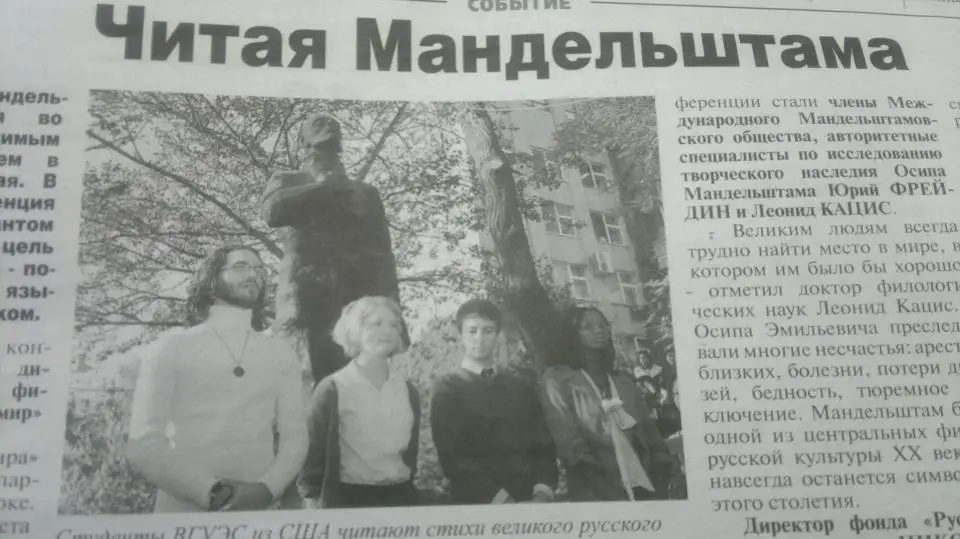
Translating Mandelstam in Vladivostok
One of the things that I enjoy about the Vladivostok State University of Economics and Service is how the Russian language department there is always trying to involve the international students in cultural events. Whether it’s a weekend trip to an archeological dig site, or a visit to the theater to see a movie about […]
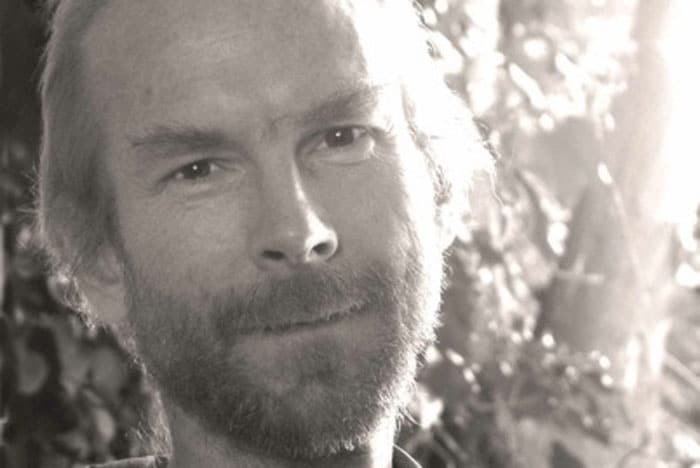
Robert Chandler: Translation as a Career and a Love
Robert Chandler graduated with a BA in Russian and English Literature from Leeds University. His translations from Russian include Vasily Grossman’s Life and Fate and Everything Flows, Leskov’s Lady Macbeth of Mtsensk and Aleksander Pushkin’s The Captain’s Daughter. His co-translations of Andrey Platonov have won prizes both in the UK and in the USA. His translation of Hamid Ismailov’s The Railway […]
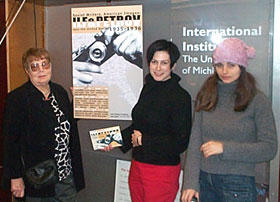
Anne Fisher: Translation and Interpreting as Professions
Dr. Anne Fisher holds a Ph.D. in Russian Literature from The University of Michigan. She has taught Russian in several institutes of higher learning and is now a professional translator and interpertor living in California. Her first major translation, Ilf and Petrov’s American Road Trip: The 1935 Travelogue of Two Soviet Writers, was shortlisted for the […]
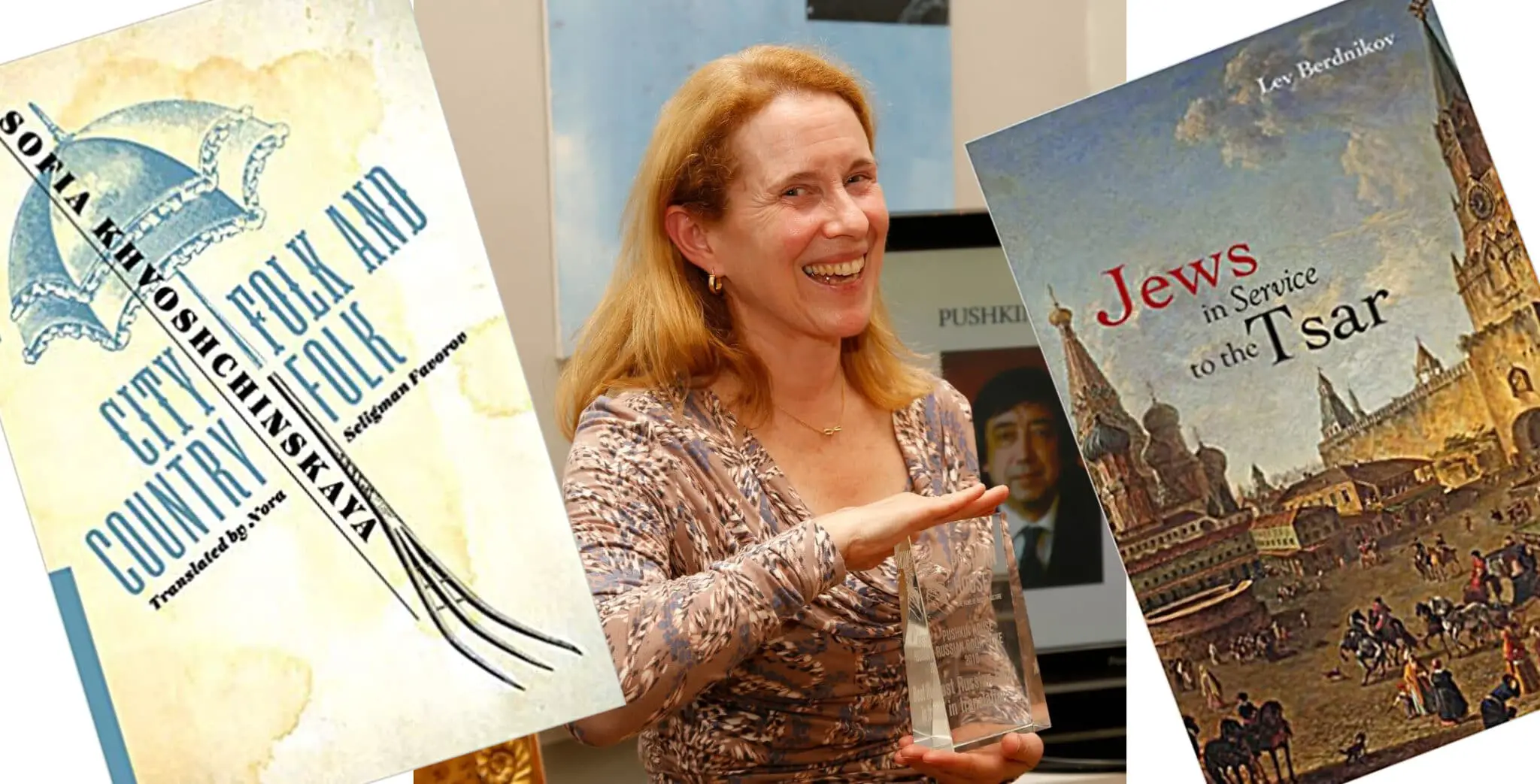
The Accidental Translator: Interview with Nora Favorov
Nora Favorov is a freelance, professional translator working in the Russian>English market and is an active member of the American Translator Association. She recently took some time from her piles of manuscripts to talk about how she came to work in her profession and what it’s like to work in a profession that often must bridge art […]
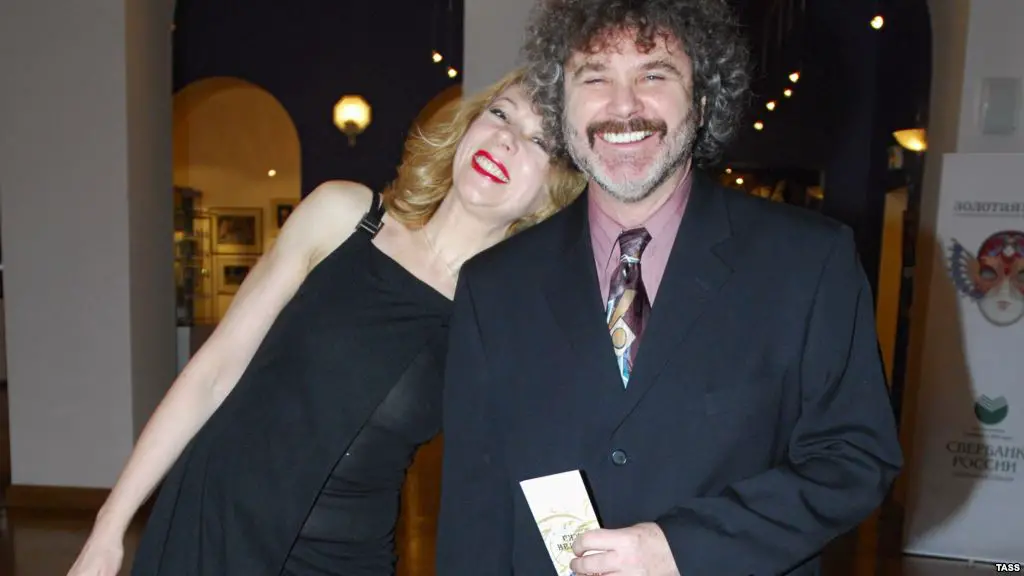
John Freedman: Man of the Newspaper, Theater, etc
John Freedman first came to Moscow in 1988 to research his dissertation for a Ph.D in Russian Literature. He found out a lot. He also found a woman he loves and some incredible professional and personal opportunities. He is now an editor for Moscow’s largest English-language newspaper, a published author and translator, and has been […]





